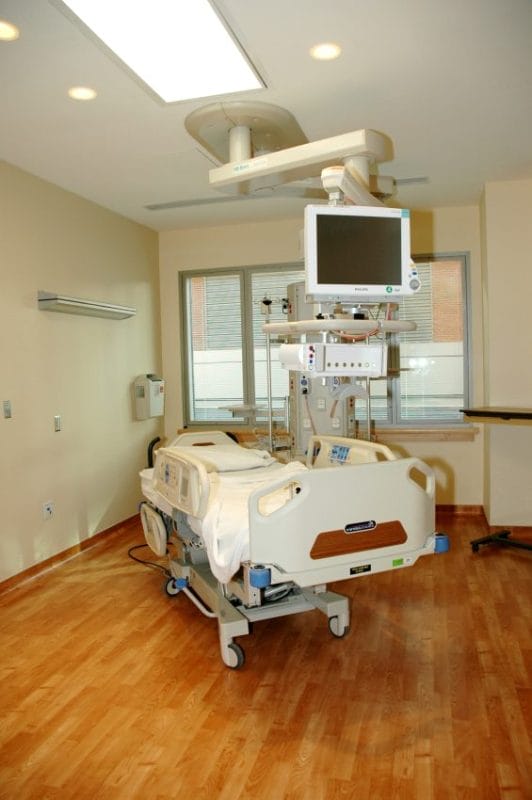In an era where technology is the backbone of innovation, the healthcare industry is not left behind. The digital transformation wave has swept across various sectors, and healthcare distribution is one of the most impacted areas. This transformation is not just a trend; it’s a necessity that ensures faster, more efficient, and more transparent deliveries.
The Digital Revolution in Healthcare: A Deeper Dive
The healthcare industry has been undergoing a significant digital revolution, especially since the onset of the COVID-19 pandemic. Technologies like Big Data, mobile applications, and artificial intelligence have opened up new frontiers in medicine. But the impact of these technologies extends far beyond patient care; they are revolutionizing the distribution of medical supplies and services. The integration of cloud computing and IoT devices has enabled real-time tracking and management of medical inventory, fundamentally altering the way healthcare providers manage their resources.
In the past, healthcare distribution was plagued by inefficiencies, from outdated inventory systems to slow, manual processes. The digital revolution has addressed these issues head-on. For instance, cloud-based inventory systems allow for real-time updates, ensuring that healthcare providers are never out of essential supplies. IoT devices, on the other hand, enable smart tracking of these supplies from the manufacturer to the end-user, ensuring transparency and reducing wastage. Using machine learning algorithms further optimizes the supply chain, predicting demand and automating reorders, thus reducing the burden on healthcare providers.
The Impact on Distribution: Beyond Efficiency
The distribution process in healthcare has been revolutionized by digital solutions. Traditional methods that relied heavily on manual labor and paper-based systems are being replaced by automated, data-driven processes. This shift has led to more efficient operations and reduced human errors. Moreover, the use of blockchain technology has added a layer of transparency and security, ensuring that medical supplies reach their destination promptly and accurately.
Blockchain technology, in particular, has been a game-changer in healthcare distribution. This technology allows for the secure and transparent tracking of medical supplies, ensuring that these supplies are not tampered with during transit. Such secure and transparent tracking is crucial when distributing sensitive items like vaccines or surgical equipment. Additionally, blockchain technology enables smart contracts, which automate many administrative tasks that previously slowed down the distribution process. The automation provided by smart contracts speeds up deliveries and reduces the chances of errors or fraud, thereby making the entire distribution system more reliable and efficient.
The Power of Digital Therapeutics Platforms: A New Age of Treatment
Digital therapeutic platforms are a prime example of how digital transformation makes waves in healthcare distribution. These platforms use mobile applications and AI to manage and treat medical disorders, thus streamlining the distribution of these digital treatments. The rise of telemedicine and virtual consultations has further facilitated the distribution of digital therapeutics, making healthcare more accessible than ever.
The value of digital therapeutics platforms extends beyond just treatment; they are transforming how healthcare is delivered. For instance, these platforms can integrate with electronic health records (EHRs), providing healthcare providers with valuable data that can be used for more personalized treatment plans. This data-driven approach not only improves patient outcomes but also optimizes the distribution of healthcare resources. By leveraging AI algorithms, these platforms predict patient needs and ensure the distribution of the right treatments to the right people at the right time.
Vereburn Medical Supply: Revolutionizing Online Medical Shopping
One of the most transformative aspects of digitalization in healthcare distribution is the ability to shop medical supplies online. Vereburn Medical Supply is a leader in this digital transformation. Vereburn offers a wide range of medical supplies online, from surgical instruments to personal protective equipment. Their platform is designed for ease of use, ensuring that healthcare providers can quickly find and order the needed products. Moreover, the transparency offered by Vereburn’s online platform allows for better inventory management and ensures that healthcare providers get the best value for their money.
The Future
As digital transformation continues to evolve, healthcare distribution will only become more efficient, transparent, and consumer-friendly. The focus is now shifting from just technology to internal factors like reimbursement, physician buy-in, and operating processes, ensuring a more holistic approach to healthcare delivery.
